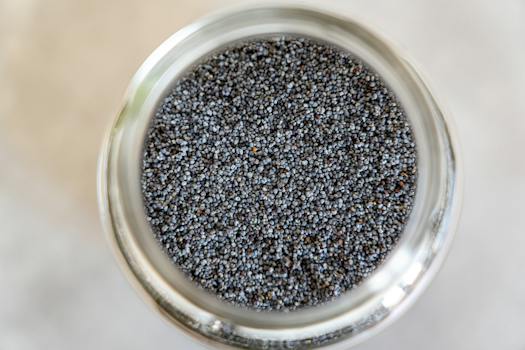

-
Table of Contents
"Unlock the power of plants for a healthier you - embrace the health benefits of a vegan diet."
Introduction
The Health Benefits of a Vegan Diet
A vegan diet is a plant-based eating pattern that excludes all animal products, including meat, dairy, eggs, and honey. It primarily focuses on consuming fruits, vegetables, whole grains, legumes, nuts, and seeds. This dietary choice has gained popularity in recent years due to its potential health benefits. Research suggests that adopting a vegan diet can contribute to improved heart health, weight management, reduced risk of certain cancers, and better management of chronic diseases such as diabetes. Additionally, it may provide individuals with a higher intake of essential nutrients and antioxidants.
Improved Heart Health on a Vegan Diet
The health benefits of a vegan diet are numerous and well-documented. One of the most significant advantages of adopting a vegan lifestyle is the positive impact it can have on heart health. Studies have consistently shown that individuals who follow a vegan diet have a lower risk of developing heart disease compared to those who consume animal products.
One reason for this is that a vegan diet is typically low in saturated fat and cholesterol. Animal products, such as meat and dairy, are high in these unhealthy fats, which can contribute to the buildup of plaque in the arteries. Over time, this can lead to atherosclerosis, a condition characterized by narrowed and hardened arteries. By eliminating these sources of saturated fat and cholesterol, vegans can significantly reduce their risk of developing heart disease.
In addition to being low in saturated fat and cholesterol, a vegan diet is also rich in heart-healthy nutrients. Fruits, vegetables, whole grains, legumes, and nuts are all staples of a vegan diet and are packed with vitamins, minerals, and antioxidants that promote cardiovascular health. These nutrients help to reduce inflammation, lower blood pressure, and improve blood vessel function, all of which are crucial for maintaining a healthy heart.
Furthermore, a vegan diet can help individuals maintain a healthy weight, which is another important factor in heart health. Obesity is a significant risk factor for heart disease, and studies have shown that vegans tend to have lower body mass indexes (BMIs) compared to non-vegans. This is likely due to the high fiber content of plant-based foods, which helps to promote feelings of fullness and prevent overeating. Additionally, plant-based diets are typically lower in calories, making it easier to achieve and maintain a healthy weight.
Another way in which a vegan diet can improve heart health is by reducing the risk of developing type 2 diabetes. Diabetes is a major risk factor for heart disease, and research has shown that vegans have a lower incidence of this condition compared to non-vegans. The high fiber content of plant-based foods helps to regulate blood sugar levels and improve insulin sensitivity, which can help prevent the onset of diabetes.
It is important to note that while a vegan diet can provide significant benefits for heart health, it is not a guarantee of a healthy heart. It is still essential to maintain a balanced diet and engage in regular physical activity to optimize cardiovascular health. Additionally, individuals considering adopting a vegan diet should ensure they are getting all the necessary nutrients, such as vitamin B12, iron, and omega-3 fatty acids, which are typically found in animal products. These nutrients can be obtained through fortified foods or supplements.
In conclusion, a vegan diet can have a profound impact on heart health. By eliminating saturated fat and cholesterol, increasing intake of heart-healthy nutrients, promoting weight loss, and reducing the risk of diabetes, a vegan lifestyle can significantly reduce the risk of developing heart disease. However, it is crucial to approach a vegan diet with proper planning and ensure all necessary nutrients are obtained to maintain overall health.
Enhanced Weight Management through a Vegan Diet

Enhanced Weight Management through a Vegan Diet
Maintaining a healthy weight is a goal that many individuals strive to achieve. With the rise in obesity rates and the associated health risks, finding effective ways to manage weight has become increasingly important. One approach that has gained popularity in recent years is adopting a vegan diet. Not only does this dietary choice offer numerous health benefits, but it has also been shown to enhance weight management.
One of the primary reasons why a vegan diet can aid in weight management is its emphasis on whole, plant-based foods. Fruits, vegetables, whole grains, legumes, and nuts form the foundation of this diet, providing essential nutrients while being low in calories. These foods are rich in fiber, which helps to promote feelings of fullness and reduce overeating. Additionally, they are packed with vitamins, minerals, and antioxidants that support overall health and well-being.
Another factor that contributes to enhanced weight management through a vegan diet is the absence of animal products. Animal-based foods, such as meat and dairy, tend to be higher in saturated fats and cholesterol. By eliminating these from one's diet, individuals can reduce their intake of unhealthy fats and lower their risk of weight gain and related health issues. Plant-based alternatives, such as tofu, tempeh, and plant-based milks, offer healthier options that are lower in fat and cholesterol.
Furthermore, a vegan diet can help individuals make more mindful food choices. By eliminating animal products, individuals are encouraged to explore a wider variety of plant-based options. This often leads to increased consumption of nutrient-dense foods and a reduced reliance on processed and high-calorie foods. As a result, individuals are more likely to consume a balanced diet that supports weight management.
In addition to the nutritional benefits, a vegan diet can also contribute to weight loss through its impact on metabolism. Plant-based foods are generally lower in calories and higher in fiber, which can help to increase the efficiency of the digestive system. This, in turn, can lead to a higher metabolic rate and improved calorie burning. Studies have shown that individuals following a vegan diet tend to have a lower body mass index (BMI) and a reduced risk of obesity compared to those who consume animal products.
It is important to note that while a vegan diet can be beneficial for weight management, it is not a guarantee of weight loss. Like any dietary approach, it requires careful planning and consideration of individual needs and preferences. It is essential to ensure that the diet includes a variety of nutrient-rich foods and meets all the necessary nutritional requirements.
In conclusion, adopting a vegan diet can offer numerous health benefits, including enhanced weight management. By focusing on whole, plant-based foods and eliminating animal products, individuals can reduce their intake of unhealthy fats and cholesterol while increasing their consumption of nutrient-dense foods. Additionally, the high fiber content of a vegan diet promotes feelings of fullness and supports a healthy metabolism. However, it is important to approach this dietary choice with careful consideration and ensure that all nutritional needs are met. With proper planning and guidance, a vegan diet can be a valuable tool in achieving and maintaining a healthy weight.
Potential Cancer Prevention with a Vegan Diet
A vegan diet, which excludes all animal products, has gained popularity in recent years for its potential health benefits. One area where a vegan diet may have a significant impact is in the prevention of cancer. Numerous studies have shown that a plant-based diet can reduce the risk of developing various types of cancer.
One of the primary reasons why a vegan diet may be effective in preventing cancer is its high content of fruits and vegetables. These plant-based foods are rich in vitamins, minerals, and antioxidants, which play a crucial role in protecting the body against cancer. Antioxidants help neutralize harmful free radicals, which can damage cells and DNA, leading to the development of cancer. By consuming a wide variety of fruits and vegetables, vegans can ensure they are getting a diverse range of antioxidants to support their overall health.
Furthermore, a vegan diet is typically low in saturated fats and high in fiber. This combination has been linked to a reduced risk of certain cancers, such as colorectal cancer. Saturated fats, which are primarily found in animal products, have been associated with an increased risk of cancer development. On the other hand, a high-fiber diet can help regulate bowel movements and promote a healthy digestive system, reducing the risk of colorectal cancer.
In addition to the benefits of fruits, vegetables, and fiber, a vegan diet also eliminates processed meats and red meats, which have been classified as carcinogens by the World Health Organization. Processed meats, such as bacon, sausages, and hot dogs, have been linked to an increased risk of colorectal and stomach cancers. Red meats, including beef, pork, and lamb, have also been associated with an elevated risk of colorectal, pancreatic, and prostate cancers. By avoiding these foods, vegans can significantly reduce their exposure to potential cancer-causing agents.
Moreover, a vegan diet may help regulate hormone levels, which can contribute to cancer prevention. Animal products, particularly dairy and meat, often contain high levels of hormones, such as estrogen and insulin-like growth factor 1 (IGF-1). Elevated levels of these hormones have been linked to an increased risk of hormone-related cancers, such as breast and prostate cancer. By eliminating animal products from their diet, vegans can reduce their exposure to these hormones and potentially lower their risk of developing these types of cancer.
It is important to note that while a vegan diet may offer potential cancer prevention benefits, it is not a guarantee against the disease. Other lifestyle factors, such as regular exercise, maintaining a healthy weight, and avoiding tobacco and excessive alcohol consumption, also play a significant role in cancer prevention. Additionally, it is essential for vegans to ensure they are meeting their nutritional needs by consuming a well-balanced diet that includes sources of essential nutrients like protein, iron, calcium, and vitamin B12.
In conclusion, a vegan diet has the potential to reduce the risk of cancer development. By focusing on a plant-based diet rich in fruits, vegetables, and fiber, individuals can benefit from the protective properties of antioxidants and a reduced intake of saturated fats. Eliminating processed and red meats from the diet can further decrease exposure to potential carcinogens. However, it is crucial to remember that a vegan diet should be part of a comprehensive approach to cancer prevention, which includes other healthy lifestyle choices.
Q&A
1. What are the health benefits of a vegan diet?
A vegan diet can provide numerous health benefits, including lower risk of heart disease, reduced cholesterol levels, improved blood sugar control, lower blood pressure, and a decreased risk of certain types of cancer.
2. Can a vegan diet help with weight loss?
Yes, a vegan diet can be effective for weight loss due to its emphasis on whole plant-based foods that are generally lower in calories and higher in fiber. Additionally, vegan diets tend to be naturally low in saturated fats, which can contribute to weight gain.
3. Are there any potential nutrient deficiencies in a vegan diet?
While a well-planned vegan diet can meet all nutrient needs, there are some nutrients that require special attention, such as vitamin B12, iron, calcium, omega-3 fatty acids, and vitamin D. Vegans should ensure they consume adequate amounts of these nutrients through fortified foods or supplements.
Conclusion
In conclusion, a vegan diet can provide numerous health benefits. It is rich in nutrients, high in fiber, and low in saturated fats. Studies have shown that it can help reduce the risk of chronic diseases such as heart disease, diabetes, and certain types of cancer. Additionally, a vegan diet may contribute to weight loss and improved overall well-being. However, it is important to ensure proper planning and supplementation to meet all nutritional needs when following a vegan diet.












